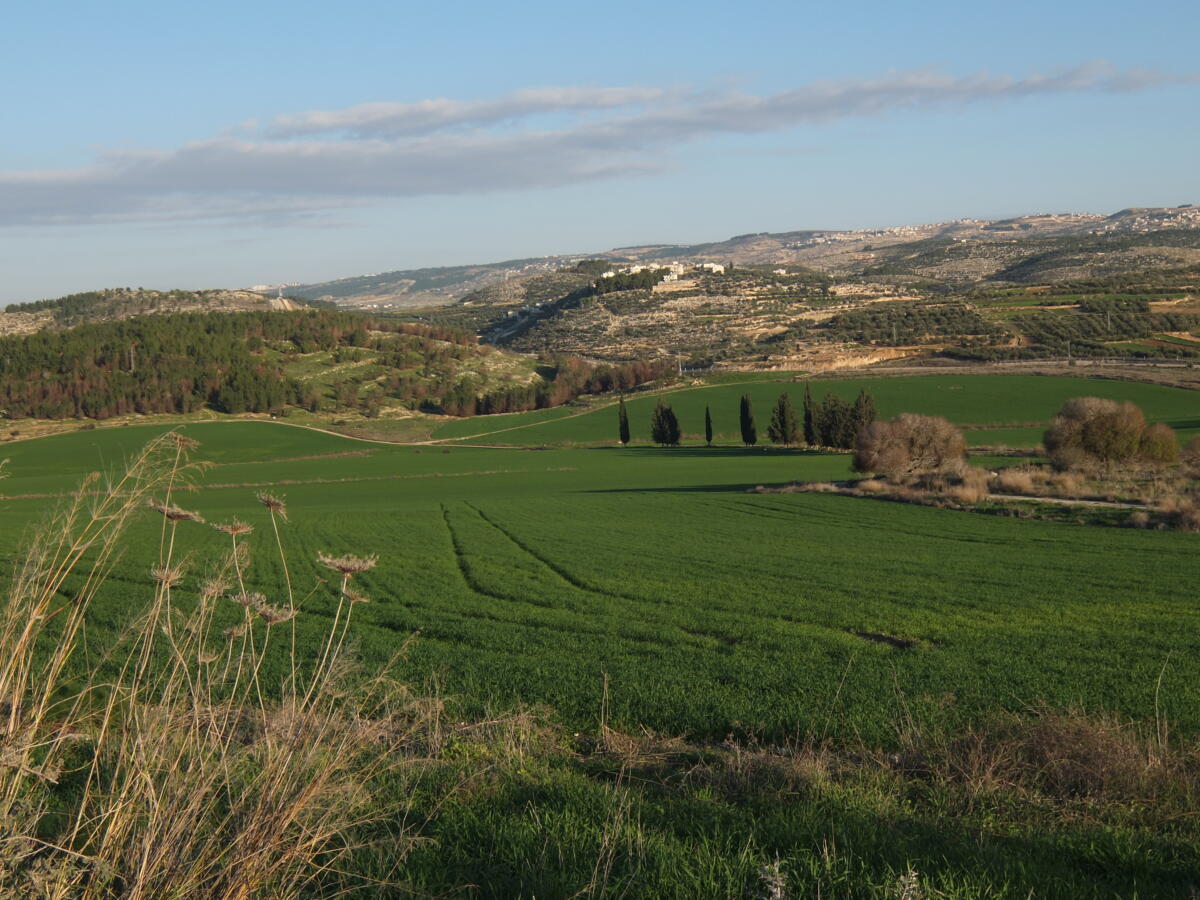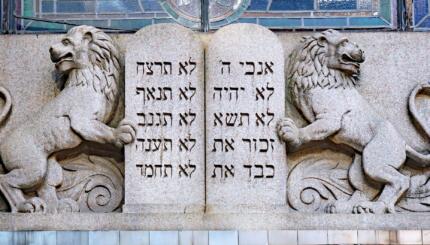In the Torah, the idea for a Land of Israel is born in tandem with the idea for a People of Israel. God’s covenant with Abraham includes a promise that Abraham’s descendants will inherit the area from the river of Egypt to the Euphrates. From the moment that God liberates these descendants from slavery and the People of Israel transform from an idea into a reality, the Torah’s narrative arc has one end: inhabiting this Promised Land.
Nonetheless, Israel’s tenancy in the Land is conditional. The Land is gifted to the Israelites with the provision that they live up to certain moral and religious standards (Leviticus 18:26). Exile is threatened if these conditions are not met (Leviticus 26:32).
The connection between behavior and residency rights extends to non-Jews as well. The indigenous peoples of Canaan lost their claim to the Land because of their ethical failings (Leviticus 18:24), and the Rabbis decreed that non-idolatrous gentiles (i.e. ethical ones) were permitted to reside in the Land, as long as they accepted the seven Noahide commandments, often considered a universal moral law.
Though the Israelites will reside in the Land, God retains ownership. This is highlighted in the many agricultural laws commanded to the Israelites in the Torah. The requirement to leave the corner of ones field for the poor (pe’ah), abstain from eating the fruits of a new tree (orlah), and let the land lie fallow every seventh year (shemitta)–among other similar laws–all stress God’s right to divvy out produce as God sees fit. Additionally, all sales and transfers of land were revoked in the Jubilee year, a rule that emphasized that only God has the power to bequeath the Land permanently.
With your help, My Jewish Learning can provide endless opportunities for learning, connection and discovery.
The Land of Israel is most famously described as a place flowing with milk and honey (Exodus 3:8). Zechariah invokes another famous moniker, when he refers to the Land as admat ha-kodesh, holy land (2:16). Yet the nature of this holiness is ambiguous. Some traditions higlight the inherent sacredness of the Land; others suggest that the sanctity of the Land is dependent upon the commandments fulfilled there.
The Mishnah (Kelim 1:6) reflects this latter position, stating that the Land of Israel is holier than all other lands because certain sacrificial produce–the omer, the first fruits, and the two Loaves–are brought from it and not from other lands. In other words, the Israelites weren’t commanded to fulfill the agricultural commandments because Israel is holier than all other lands, rather the agricultural commandments themselves hallow the Land.
Other rabbinic texts imply the opposite view. A midrash states that, “The Holy One, blessed be he, further took the measure of all lands and found no land but the Land of Israel that was truly worthy for the people Israel” (Leviticus Rabah 13:2).
Both these rabbinic traditions have their roots in the Bible, but the rabbis introduced new ideas about the Land as well. Living in the Land is said to atone for all sins (Sifrei Deuteronomy 333), and the importance of being buried in the Land is emphasized. This latter custom harkens back to the forefathers; however, a new reason emerged in the rabbinic era: the idea that those buried in Israel would be the first to be resurrected in the End of Days (Jerusalem Talmud, Kilaim 9:3).
The rabbinic sages lived after the destruction of the Second Temple and the exile that followed. The center of Jewish life shifted to Babylonia, though a community remained in Palestine, as well. Rabbinic texts about the Land reveal traces of an ideological battle between these two communities.
Some traditions originating in Palestine are wildly condemnatory of those living outside the Land. Thus it is written that one who “leaves the land in a time of peace it is as if he worships idols” (Tosefta Avodah Zarah 4:5). Meanwhile, Babylonian texts are, not surprisingly, more supportive of exilic existence. This position reaches its paradigmatic form in Rabbi Judah’s statement that, “He who resides in Babylonia, it is as if he resided in the Land of Israel” (Ketubot 111a).
Mishnah
Pronounced: MISH-nuh, Origin: Hebrew, code of Jewish law compiled in the first centuries of the Common Era. Together with the Gemara, it makes up the Talmud.



